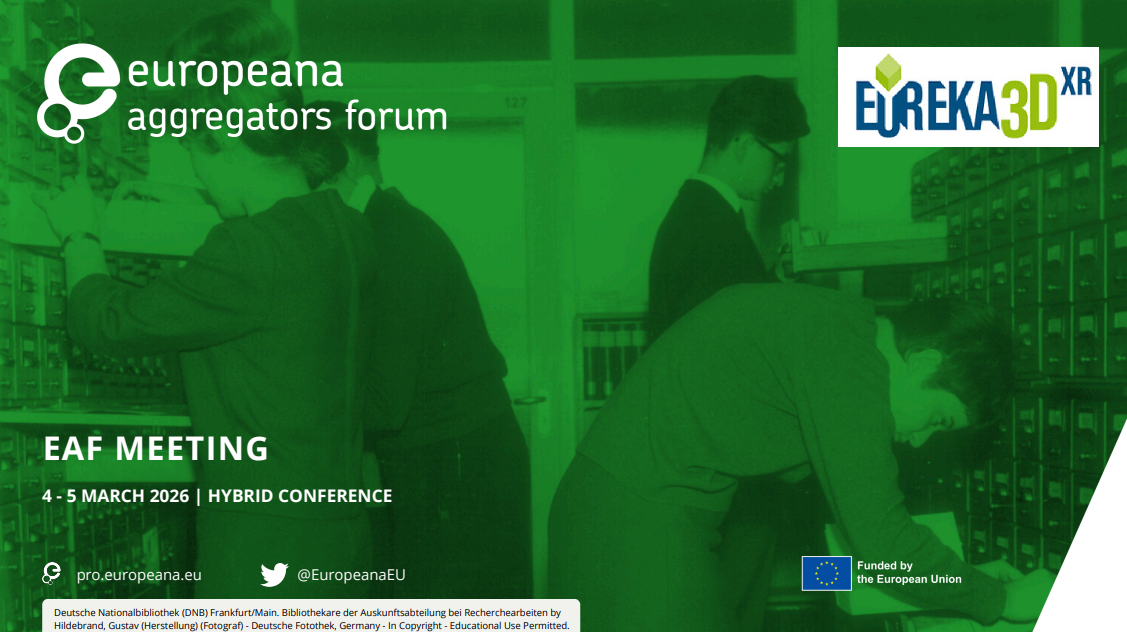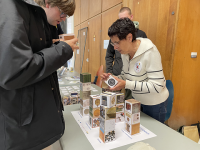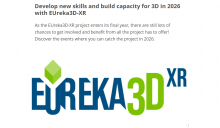Login Status
-
Free text
UPCOMING EVENTS:
 Wrocław University of Environmental and Life Sciences, 4th of Match 2026
Wrocław University of Environmental and Life Sciences, 4th of Match 2026The international conference “Cross-border cooperation in the era of challenges and transformation – space, energy, climate, culture” will be held on 4 March 2026 at the Wrocław University of Environmental and Life Sciences, in Wrocław, Poland. The conference will explore key issues facing border regions, from … Continue reading →
 Girona and online, 29 January 2026
Girona and online, 29 January 2026With over 50 participants on site and a equal number of attendees online, EUreka3D-XR organized a Capacity Building and demonstration event. The demonstration comes at a moment when the project’s progress in the development of tools and pilot scenarios has … Continue reading →
Topic: EU projects

CULTURA Virtual Research Environment, three Cultural Heritage Collections, Personalisation, Entity Relationship Extraction, Entity Oriented Search, Text Normalization, Network Visualisations in the Drupal Module, Desktop Premapper, Web Premapper, FAST Annotation Service, Content Annotation Tool, Equalia, … Continue reading
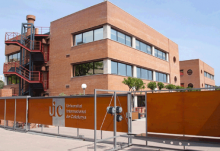
i2cat Foundation organised in collaboration with the Universitat Internacional de Catalunya (UIC) the first RICHES workshop to be held in Barcelona on the 13th of May Continue reading
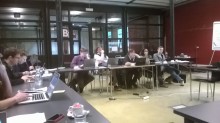
A group of memory institutions met in Brussels to agree on the expected behavior and functionality of the tools to be developed in the coming years by the software suppliers that will be selected out of the procurement that will be launched by the project. The outcome of the workshop will be soon available on the PREFORMA website. Continue reading
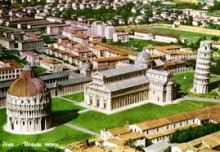
The location of the exhibition is Palazzo Lanfranchi, a very prestigious exhibition centre, in an historical palace in the center of Pisa, on the Lungarno Galilei (the embankment of river Arno). Each photograph displayed in Palazzo Lanfranchi is printed with the most advanced printing techniques and on a very pure, cotton-based paper that enhances the photograph at its best. In order to attract the citizens to visit the exhibition and to engage the visitors, Collection Days are organized to digitize family photos and albums related to the timeframe of the project. Continue reading
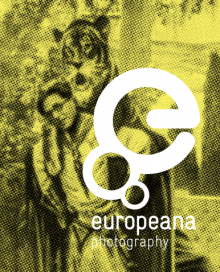
The great event of Europeana Photography project is the result of collective effort from all the partners of this extraordinary consortium. An important role in the direction of the scientific project behind the exhibition was played by the project coordinator KU Leuven, in charge of coordinating the selection of images together with the content providers, and of developing themes and narrative of the exhibition and the catalogue book. Grand opening event is taking place in Pisa (Italy) 11th April – 2nd June 2014, in the historical setting of Palazzo Lanfranchi, organized by Promoter. Continue reading

In Pisa, at Palazzo Lanfranchi, from 11th April to 2nd June 2014, a great photographic and multimedia exhibition based on the most advanced digitization and printing technologies, telling the stories of our grandfathers. The exhibition is organized in the framework of the EU-funded project Europeana Photography. Continue reading

Open access, open data, workshops, training events, and much more… The February edition of the EUDAT News Bulletin has been released to keep the community updated about the latest news and developments from the project. Continue reading
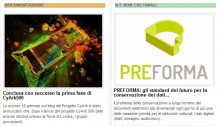
Archeomatica, an Italian multidisciplinary e-magazine about new technologies and Cultural Heritage, presents PREFORMA and the related Call for Tender to its readers in an article entitled “PREFORMA: gli standard del futuro per la conservazione dei dati digitali culturali”. Continue reading
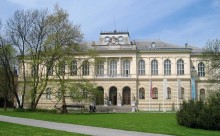
On the 18th February 2014, in the beautiful premises of the National Museum of Slovenia, it was held the third plenary meeting of EAGLE project, which included a special training session for the content providers. The meeting was joined with the EAGLE Public Workshop ‘Current Practices and New Directions in Digital Epigraphy’. Continue reading

IRCDL is a yearly deadline for Italian researchers on Digital Libraries related topics. The University of Padua, who organised the 2014 edition of the event, presented and disseminated the final results of the CULTURA project to the participants. Continue reading


